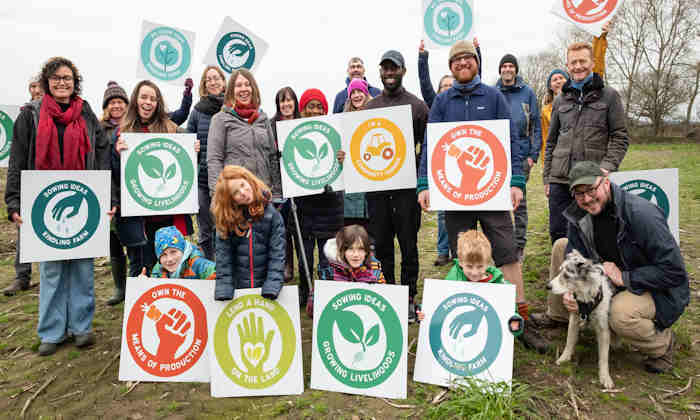Spotlight on Kindling Farm: a blueprint for sustainable farming
31 May 2023
Our University is proud to have been working alongside Manchester’s leading grassroots sustainable food organisations, the Kindling Trust and Veg Box People, for over a decade now

Learn how you can help make their vision for a fairer, more sustainable food and farming system a reality.
Helen, co-founder of Kindling Trust and Kindling Farm told us: “It is a very exciting time for us, we have just purchased a 77-acre farm, between Manchester and Liverpool, to establish a pioneering community-owned, agroforestry farm for the North West of England and beyond.
"And we would love you - both as the University and as individuals - to be part of it.”
Using the most low carbon and wildlife friendly farming techniques, the farm will significantly increase the volume and range of fresh, delicious, organic fruit and veg produced locally.
Our University is one of the founding members of the growers and buyers co-operative (Manchester Veg People), which means local organic produce can be found in cafes and halls across campus. The very first Veg Box Collection point started life in University Place, born out of a demand from our staff and students, a collection point which is still in use today.
Kindling Farm is the next stage in our shared vision of a more sustainable food system and we see huge potential in this collaboration, from receiving fresh local produce to research or volunteering for a day on the farm.
Kindling Farm has just had some new match investment approved and every share invested by the community, will be matched £1 for £1, by the Community Share Fund in partnership with Co-operatives UK - up to the value of £50,000.
- If you are interested in investing in Kindling Farm, you can find out more information about what they do and how to make an investment.
The aim of Kindling Farm is to show that a more ecologically and socially-just food and farming system is possible and to support others to do the same.
- For more information contact: farm@kindling.org.uk
